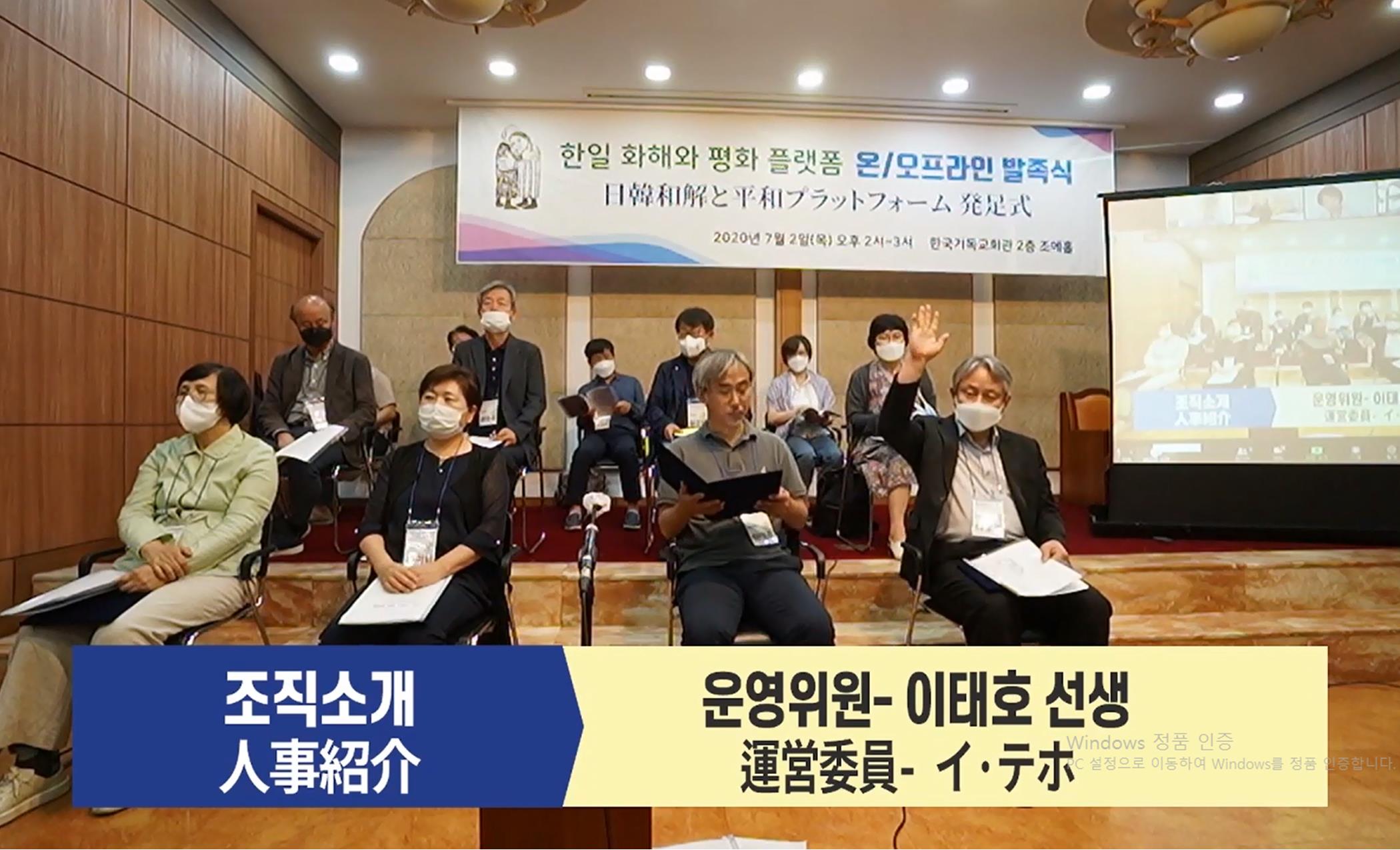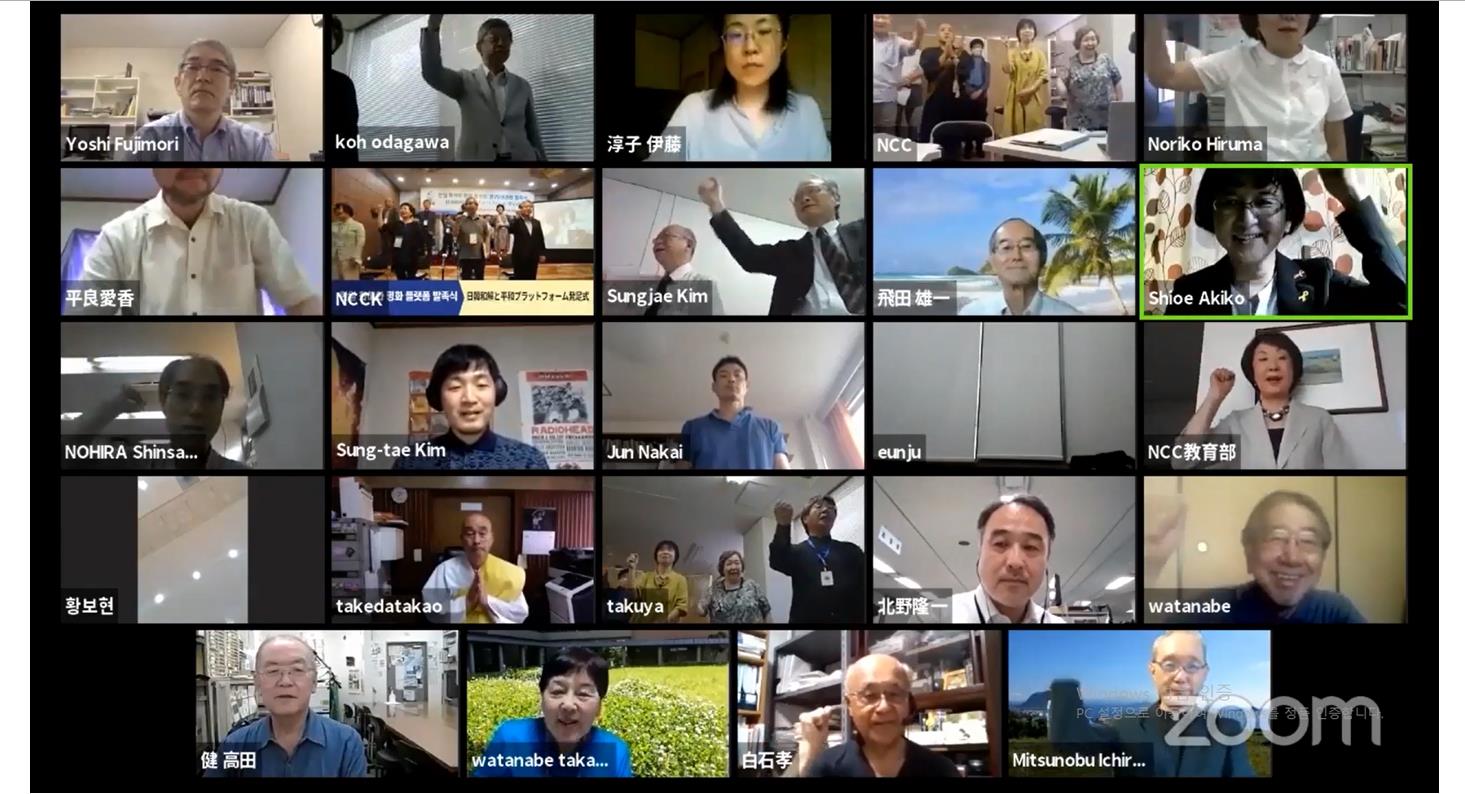A Letter from Kurt Esslinger and Hyeyoung Lee, serving in Korea
Summer 2021
Write to Hyeyoung Lee
Individuals: Give online to E200496 for Kurt Esslinger and Hyeyoung Lee’s sending and support
Congregations: Give to D507560 for Kurt Esslinger and Hyeyoung Lee’s sending and support
Churches are asked to send donations through your congregation’s normal receiving site (this is usually your presbytery)
Subscribe to our co-worker letters
Dear friends,
When I receive a new translation assignment from the National Council of Churches in Korea (NCCK), I usually play a little game in my head of how long I think it will take me to translate, usually Korean into English, based on how complicated the document looks at first glance. I may have been living in Korea for eight years now, but I am still dependent on internet resources and dictionaries in order to parse documents and statements with complex sentences and unfamiliar vocabulary. Thankfully I’ve gotten better over these years of working with the NCCK. Now I’d say my level of translating writing is: I can finish translating one page of Korean written by a pastor with a master’s degree who is connecting theology to the experience of global politics in East Asia within about one afternoon. So, within a few days, I could translate a statement with a few pages.
The time it takes to arrive at a final version of a document, however, can depend on who is involved in writing it. Just writing a document in one language can take some time if a group of people is collaborating on the wording. If that group of people involves several different countries, that time gets longer. If the translation of the document also has to be checked by the people of various countries who speak different languages, then you know it will take a while to reach a final version. That was the situation I found myself in when Rev. Shin asked me to translate a statement that organizations from both Japan and Korea had written to address the growing tension between the two countries and the U.S. role in that tension.
The statement came from the Korea-Japan Reconciliation Platform (JK Platform), a platform made up of religious and civil society organizations from both Japan and Korea who see the rising and ongoing tension between their two countries and want to find ways to resolve it. Several years ago, a Korean court considered the case of Koreans who were forced to work in factories for two Japanese companies, Mitsubishi Heavy Labor Ind. and Nippon Steel, during the period of Japan’s colonization of Korea (which technically began in 1910 and lasted until 1945). The court had to decide whether the laborers deserved compensation for lost wages and mistreatment during their time of forced labor. Japan believes those issues were settled with a treaty in 1965 between Japan and Korea; however, that treaty was established when Korea was under the rule of a military dictator who also happened to have served in the Japanese military during the time of colonization.When the Korean court ruled in favor of the laborers and ordered the Japanese companies to pay compensation, the Japanese government responded by increasing trade barriers on the entire country of South Korea, which led to a similar measure on the part of South Korea, increasing trade barriers for Japan, resulting in a diplomatic downward spiral. The JK Platform was founded to respond to this tension between the two countries, with Korean and Japanese organizations coming together not to ignore past wrongs but to affirm that a healthy relationship must be built on taking responsibility for past injustices. In their founding statement, they claim: “With the hope of reconciliation and peace between Korea and Japan, the JK Platform comes together with cooperation and solidarity through a correct perception of history….” So Japanese citizens and Korean citizens together proclaiming that Korea should not have to ignore their past trauma at the hands of Japan in order to have a healthy relationship and that Japan should take full responsibility for all of its injustices during the time of colonization, including the ongoing dispute over the extent to which women throughout Asia suffered under the system of sexual slavery set up by the Japanese military, referred to by the euphemism of “Comfort Women.” The platform also clarifies that measures taking only partial responsibility, such as the 1965 treaty, fail to adequately address the situation in a just way.
However, at this moment in time, the U.S.A. has become part of the equation because U.S. diplomats have been putting pressure on Korea to accept all partial forms of taking responsibility. They discouraged actions like the ruling of the Korean court finding Japanese countries responsible for compensation. U.S. foreign policy has told Korea that they want Korea to acquiesce to the U.S.’s need for a unified alliance against China and North Korea and that all issues of past injustices must be swept aside as they are lower in priority. The 1965 treaty is an example of this as Korea received pressure from the U.S. at the time to join the formal Cold War alliance. Again in 2015, Korea was pressured to hastily conclude an agreement over the “Comfort Women” issue, which included measures like Korea no longer mentioning it in any official statements and that Korea would remove the original Peace Statue commemorating the “Comfort Women’s” movement for justice from the site of their demonstrations. Now the U.S. is pressuring Korea to drop the issue of forced labor, pushing them into the newly formed Quadrilateral Security Dialogue (the Quad) in East Asia, which already includes the U.S., Japan, Australia and India.
The letter I translated for the JK Platform emphasizes this point: “We are concerned that the U.S. government, in order to strengthen U.S.-Korea-Japan military cooperation, is urging the Korean and Japanese governments to reach a political settlement that will wipe away the past colonial legacy and the human rights issues including the enforced labor and the Japanese military sexual slavery. We do not want an agreement that puts national interests and military alliances first, forcing the victims of colonial rule to compromise and keep silent. Any political compromise that sets aside the issue of historical awareness will destabilize Korea-Japan relations and fail to bring about lasting peace in the region.”
We sent this letter to the office of President Joe Biden, hoping that his administration ends this pressure on South Korea. I also hope that you will hear these voices united in Japan and Korea, that healthy international relationships cannot be based on ignoring historic injustices. If you can, I also encourage you to share these voices with the leaders of our government whom we elect and the diplomats they appoint so that we do not become a force in the world that obstructs the progress of justice.
Once again, thank you for your support of our ministry, which in this case interprets the hopes and fears of our partners and fellow children of God in Korea and Japan. Thank you for continuing on this journey with us toward the realization of God’s peace and justice in our world. Amen.
Kurt and Hyeyoung
Please read the following letter from Sara P. Lisherness, the interim director of World Mission:
Dear partners in God’s mission,
I don’t know about you, but daily my heart grows heavier. News about the pandemic, wars, wildfires, gun violence, racism, earthquakes and hurricanes cloud my vision. It’s hard to see hope; our world is in a fog. Yet we trust that God’s light and love transcend the brokenness of this time.
God is at work transforming the world, and you, through your prayers, partnership and encouragement, are helping us share this good news. Thank you for your faithful and gracious support of our mission personnel.
How can we see through the fog? What will the church be after the pandemic? Could it be that God is doing “a new thing” and is inviting us to perceive it? Through all the uncertainty we know that God’s steadfast love and care for all creation will prevail and that God’s Spirit is at work in each of us.
We all have an integral part to play in fulfilling God’s mission. As we seek to grow together in faithfulness there are three important steps I invite you to take in supporting our shared commitments to God’s mission:
Give – Consider making a year-end financial contribution for the sending and support of our mission personnel. Your support helps mission personnel accompany global partners as together they share the light of God’s love and justice around the world. Invite your session to include support for mission personnel in its annual budget planning.
Act – Visit The Mission Yearbook for Prayer and Study to delve deeper into the work God is doing through the PC(USA) and its partners in ministry around the globe: pcusa.org/missionyearbook.
Pray – Include our mission personnel, our global partners, and our common commitments to share God’s grace, love, mercy and justice in your daily prayers.
Thank you for your faithfulness to God’s mission through the Presbyterian Church. It is my prayer that you will continue to support this work with your prayers, partnership, and financial gifts in the coming year. We hope you will join us and our partners in shining a beacon of hope throughout the world.
In the light of hope,

Sara P. Lisherness, Interim Director
World Mission
Presbyterian Mission Agency
Presbyterian Church (U.S.A.)
To give please visit https://bit.ly/PCUSAmission
You are the light of the world. A city built on a hill cannot be hid. No one after lighting a lamp puts it under the bushel basket, but on the lampstand, and it gives light to all in the house. In the same way, let your light shine before others, so that they may see your good works and give glory to your Father in heaven. Matthew 5:14-16
![]() You may freely reuse and distribute this article in its entirety for non-commercial purposes in any medium. Please include author attribution, photography credits, and a link to the original article. This work is licensed under a Creative Commons Attribution-NonCommercial-NoDeratives 4.0 International License.
You may freely reuse and distribute this article in its entirety for non-commercial purposes in any medium. Please include author attribution, photography credits, and a link to the original article. This work is licensed under a Creative Commons Attribution-NonCommercial-NoDeratives 4.0 International License.

